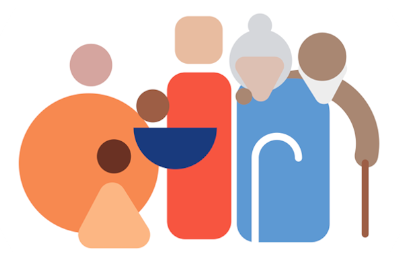The main objective of POWER2DM is to develop and validate a personalized self-management support system (SMSS) for Type-1 and Type-2 diabetes patients that combines and integrates:
- a decision support system (DSS) based on interlinked predictive computer models; KADIS, T2D-Marvel, and state-of-the-art risk scores.
- automated e-coaching and advice functionalities based on Behavioural Change Theories; and
- real-time personal data processing and interpretation.
The DSS will be based on existing predictive models that were originally developed primarily for decision support to healthcare professionals, specifically the KADIS short-term plasma glucose prediction model (developed by partner IDK), the T2D-Marvel medium/long-term prediction model (developed by partner TNO in FP7 MISSION-T2D) for diabetes progression, and established long term diabetes-related risk scoring models for diabetes and its co-morbidities (described in the literature).
The SMSS will provide automated personalized action (care) plans in terms of lifestyle changes and therapy adjustments for short-term optimal metabolic control as well as for medium/long-term prevention of deterioration and diabetes complications, building on the Action Plan Engine developed by partners SRFG and SRDC in FP7 EMPOWER project. The SMSS will fully integrate subject-specific health behaviour change interventions to increase adherence of the patients to their personalized care management program. The predictions will be based on real-time personal data monitoring and tracking by integrating existing personal health systems and applications including mobile systems built around self-monitoring devices.
The extent to which POWER2DM will reach these objectives and empower diabetes patients to become co-managers of their own health will be evaluated in 3 pilot studies in 3 different European countries; Germany (IDK), Netherlands (LUMC), Spain (SAS).
The European Policy Action Network On Diabetes (EXPAND) presents facts and figures on diabetes that point out four main reasons to counteract diabetes development:
- Diabetes is on the increase: By 2035, 1 in 10 people will have diabetes in Europe or 70 million people; increasing numbers of T2DM linked to obesity and aging and unexplained increase in T1DM.
- Unmet health needs: Among the patient diagnosed with diabetes (T1DM or T2DM), 50% do not achieve adequate glucose control, putting them at increased risk of heart disease, stroke, kidney disease and blindness.
- Huge burden on society: 10% of total healthcare expenditure in Europe, responsible for 1 in 10 deaths, huge social costs in terms of lost productivity and dependence.
- Health impact beyond diabetes: Diabetes is the number one cause of end-stage renal disease and new cases of blindness in adults of working age leads to a 3-5 times greater risk of heart disease; increases the risk of foot amputation 23-fold.
The approach of POWER2DM is motivated by the following needs to improve existing diabetes care and prevention services and approaches:
- Need to overcome limitations of existing DSS solutions that do not sufficiently target patients and have a limited focus mainly concentrating on Blood Glucose Control
- Need to reduce the gap between evidence-based findings and diabetes care in general practice
- Need for self-management interventions that are able to maintain efficacy over longer periods of time
- Need to reduce time delays involved in finding optimal therapy
- Need for research on complex evidence-based models used for patient-targeted decision support
SRDC will lead the following activities in the project;
- Conceptual design of the POWER2DM system architecture
- Development of the pro-active personalized DSS, the Recommender Engine, that not only consider the current situation of the patient but also adapt the action plan according to predictions and constructed risk profile and will suggest self-management interventions as part of the weekly feedback.
- Design and development of web and mobile user interfaces for the visualizations of predictions and interventions to deliver
- Design of the project specific data model and development of personal data storage service
| 1. | TNO | Netherlands |
| 2. | Institute of Diabetes “Gerhardt Katsch” Karlsburg | Germany |
| 3. | SRDC | Turkey |
| 4. | Leiden University Medical Center | Netherlands |
| 5. | SAS Servicio Andaluz de Salud | Spain |
| 6. | Salzburg Research Forschungs Gesellschaft | Austria |
| 7. | PrimeData | Netherlands |
| 8. | iHealth EU | France |










Pingback: We did it in Horizon 2020 too! | SRDC
Pingback: We are the most successful Turkish SME in Horizon 2020 too! | SRDC